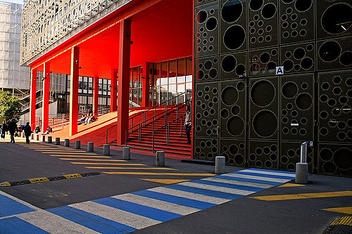How can you evaluate the quality of a degree or institute?

State recognition, accreditation or certification labels: there are many indicators for assessing the quality of an institute of higher education and the value of the training and degrees that it provides.
The national degree: a guarantee of quality
In France, a degree is considered 'national' when it is recognised, meaning accredited, by the State. This recognition is a guarantee of quality. It involves the following degrees:
- the Brevets de Technicien Supérieur (BTS - two-year technical degree), Diplômes Universitaires Technologiques (DUT - two-year technical degrees), licences and licences professionnelles (Bachelor's degrees), Master's and the Doctorates awarded by French universities;
- the title of engineer, which confers the rank of Master, awarded by the CTI (Commission des Titres d’Ingénieurs - Engineering Title Commission);
- degrees from business and management schools that are certified by the CEFDG (Commission d’Evaluation des Formations et Diplômes de Gestion- Management Training and Degree Evaluation Commission);
- professional training registered with the Répertoire National des Certifications Professionnelles (RNCP - National Registry of Professional Certification);
- specific training (architecture, arts, political science, etc.) certified by the Ministry of Higher Education, Research and Innovation.
When a degree is not recognised by the State, it bears the name of the institute that awarded it. It may have value on the work market, but does not provide an equivalence enabling the bearer to continue his or her studies.

Accreditation for the business and management schools
The accreditation provides guarantees for the quality of the training and the degrees awarded by an institute. For the business and management schools, there are independent associations or foundations that award the accreditation, such as:
- AACSB : Association for the Advancement of Collegiate Schools of Business;
- AMBA : Association of MBAs;
- EFMD : European Foundation for Management Development.
The accreditation process is long and sometimes very expensive for the institutes that request it. The accreditation is often valid for periods of three to six years.
Certification labels for engineering schools and the Grandes Ecoles
The certification labels are reliable indicators when evaluating the quality of training or of an institute. There are two for training in the engineering sciences:
- EUR-ACE: Accreditation of European Engineering Programs;
- QUESTE: Quality System of European Scientific and Technical Education.
The Conférence des Grandes Ecoles (CGE) assigns two specific certification labels to the Grandes Ecoles:
- the Mastère Spécialisé (MS - Specialist Master's), which certifies a level of training equivalent to six years of post-secondary study in a post-master's specialisation programme. It is reserved for management schools, engineering schools and certain major institutes such as the Conservatoire National des Arts et Métiers (CNAM).
- the Master of Science in Management (MSc), which is awarded for 5 years of post-secondary training in management schools or engineering schools. With a strong international orientation, these programmes are in general provided in English and are generally for foreign students.



















































